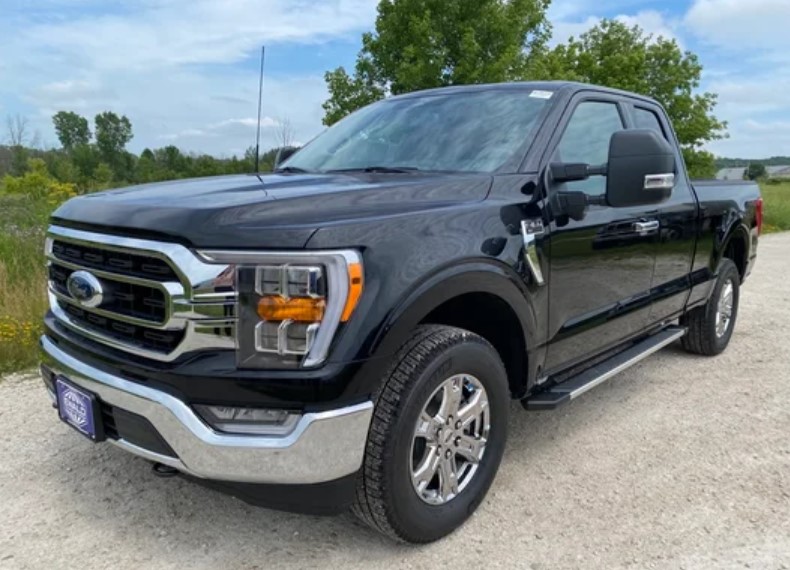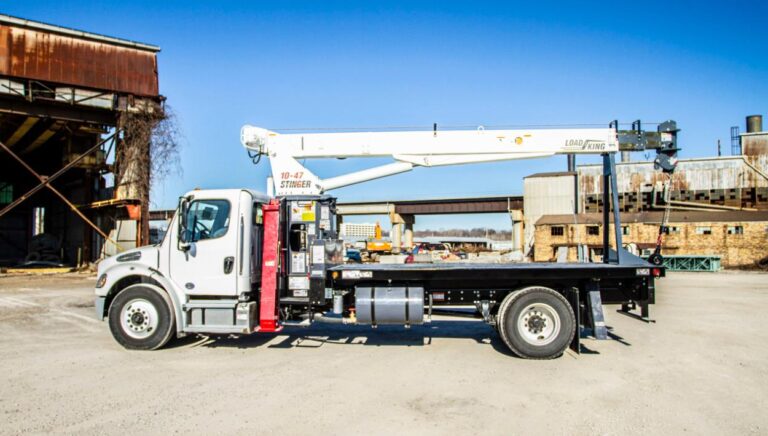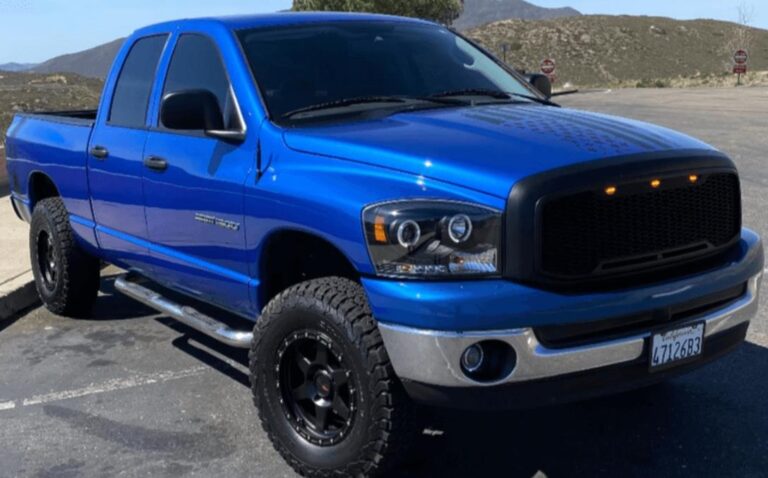How Many Miles Is Good For A Used Truck? Answered
Embarking on the journey of buying a used truck brings up crucial questions, particularly concerning mileage. In this article, we’ll explore How Many Miles Is Good For A Used Truck? and delve into various aspects affecting this decision. Transitioning seamlessly, we’ll first tackle the pressing query: “How Many Miles Is Too Much When Buying A Used Truck?” to set the foundation for understanding truck mileage.
Key Takeaways
- Ideal mileage for a used truck depends on various factors.
- Trucks with under 100,000 miles are generally considered in good condition.
- Maintenance history and truck model significantly impact the ideal mileage.
How Many Miles Is Good For A Used Truck?
Generally, a truck with less than 100,000 miles is considered preferable. However, this is a simplified answer, as several factors come into play. Understanding these factors is crucial for making an informed decision.

Factors Influencing the Ideal Mileage
- Type and Usage of the Truck
- Heavy-duty trucks are built to withstand higher mileage.
- Light-duty trucks might show wear sooner.
- Maintenance History
- Regular maintenance can extend a truck’s life beyond 200,000 miles.
- Neglected maintenance can make even 50,000 miles too many.
Mileage vs. Age
- A newer truck with high mileage might be preferable to an older one with lower mileage.
- Trucks not regularly used can have issues due to inactivity.
Understanding Truck Lifespan
Trucks are generally built to last longer than cars. The average lifespan of a well-maintained truck can exceed 200,000 miles. Therefore, a truck with 100,000 miles might still have a lot of life left, depending on other factors.
Brand and Model Reliability
- Some brands are known for longevity and reliability.
- Researching specific models can provide insight into the expected lifespan.
Importance of Maintenance History
A truck’s maintenance history is a critical factor. A well-maintained truck with higher mileage can be a better choice than a low-mileage truck with a spotty maintenance record. Always request maintenance records when considering a used truck.
Key Maintenance Factors to Consider
- Regular oil changes and fluid checks.
- Timely replacements of key components.
- Inspection for wear and tear.
Impact of Poor Maintenance
- Neglected maintenance can lead to serious mechanical issues.
- Even low-mileage trucks can have hidden problems due to poor upkeep.
Mileage in Different Truck Categories
Different types of trucks have varying mileage standards. It’s essential to understand these differences when considering a used truck.

Heavy-Duty Trucks
- Built for durability and long hauls.
- Can maintain performance beyond 200,000 miles.
Light-Duty Trucks
- Ideal for everyday use and lighter tasks.
- Typically, lower mileage is better for these trucks.
Mileage Indicators: Beyond the Number
While mileage is a useful indicator, it’s not the only factor to consider. Pay attention to the overall condition of the truck, including bodywork, engine performance, and interior wear.
Signs of Good Maintenance
- Clean engine bay.
- Smooth transmission and engine operation.
- Well-kept interior and exterior.
Red Flags to Watch Out For
- Unusual engine noises.
- Rust or significant body damage.
- Irregularities in maintenance records.
When to Consider Higher Mileage?
In some cases, opting for a higher mileage truck can be advantageous.
Benefits of Choosing Higher Mileage
- Often more affordable.
- Depreciation is slower.
Situations Ideal for Higher Mileage Trucks
- When the truck has a solid maintenance history.
- For less frequent or lighter usage.
How Many Miles Is Too Much When Buying A Used Truck?
When purchasing a used truck, the threshold for “too much” mileage can vary. Generally, trucks with over 200,000 miles are considered high mileage and could be risky purchases.
However, the decision should be based on the truck’s condition, maintenance history, and specific use case. Trucks used for light duties and maintained well can still be reliable beyond this mileage mark.

Key factors to consider include the truck’s maintenance records, any signs of major repairs, and the overall condition of the engine and transmission. Source: Consumer Reports’ Used Truck Buying Guide.
How Many Miles Do Trucks Normally Last?
The lifespan of a truck depends significantly on its make, model, and how well it’s been maintained. On average, a well-maintained truck can last anywhere between 200,000 to 300,000 miles.
Some durable models, especially from reputable brands known for longevity, can even surpass this range. The key to achieving high mileage is regular maintenance, including oil changes, timely part replacements, and addressing minor issues before they escalate. Source: J.D. Power Vehicle Dependability Study.
Is Buying A Truck With 100K Miles Bad?
Purchasing a truck with 100,000 miles is not necessarily a bad decision. At this mileage, many trucks are still mid-way through their lifespan, especially if they have been well-maintained.
When considering such a purchase, it’s crucial to inspect the vehicle’s maintenance history, check for any major past repairs, and assess the overall condition of crucial components like the engine, transmission, and suspension.

A thorough inspection by a qualified mechanic can provide valuable insights into the truck’s condition. Source: Kelley Blue Book’s Used Truck Evaluation Guide.
Is It Worth Buying A Truck With Over 200k Miles?
Buying a truck with over 200,000 miles can be worth it if the vehicle has been exceptionally well-maintained and is priced appropriately. Trucks in this mileage range may require more repairs and maintenance, but if the previous owner has kept detailed service records and the truck has no major mechanical issues, it can still be a good investment.
Key considerations include the model’s known durability, the cost of potential repairs, and the intended use of the truck. It’s advisable to get a comprehensive pre-purchase inspection from a trusted mechanic. Source: Edmunds’ Long-Term Vehicle Testing Data.
Conclusion
In conclusion, while the ideal mileage for a used truck is often cited as under 100,000 miles, this is a simplified guideline. The real answer depends on factors like the truck’s maintenance history, usage type, and specific model.
A well-maintained, higher-mileage truck can often be a better investment than a lower-mileage one with a poor maintenance history. Always consider the truck’s overall condition and history, not just the mileage, when making your decision. Remember, a truck’s value lies in how well it has been cared for, not just in how many miles it has.
People Also Ask
Is a low-mileage older truck better than a high-mileage newer one?
Not necessarily. A newer truck with high mileage might be a better choice if it has been maintained well, as vehicle technology and materials improve over time. However, an older truck with low mileage could be a good option if it has been stored and maintained correctly.
Does brand matter when considering mileage for a used truck?
Yes, brand and model reliability play a significant role. Some brands are known for their durability and can handle higher mileage better than others. Researching and choosing a reputable brand can lead to a more reliable high-mileage truck.
How do I maintain a high-mileage truck?
Maintain a high-mileage truck by following a strict service schedule, using quality parts and fluids, addressing any issues promptly, and avoiding harsh driving conditions when possible.
What should I check when buying a high-mileage truck?
When buying a high-mileage truck, check its maintenance history, engine condition, transmission performance, signs of rust or body damage, and the condition of the interior. Also, consider getting a comprehensive inspection from a trusted mechanic.

Welcome to the exhilarating world of Matt Rex, a professional car racer turned renowned vehicle enthusiast. Immerse yourself in his captivating blog as he shares heart-pounding adventures, expert reviews, and valuable insights on cars, trucks, jets, and more. Fuel your passion for speed and discover the beauty of vehicles through Matt’s engaging stories and meticulous expertise. Join the ever-growing community of enthusiasts who find inspiration and expert advice in Matt Rex’s blog—a digital hub where the thrill of speed meets the pursuit of knowledge.







